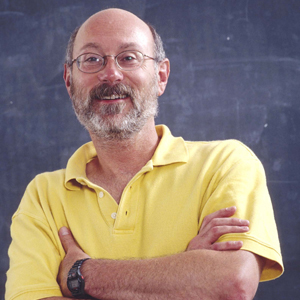Depending on one’s perspective, St. Louis County is near the top — or bottom — in the death penalty discussion. The annual report from the Death Penalty Information Center (DPIC) lists St. Louis County as second to Oklahoma County, as the county that has administered the most executions in the U.S. since the modern death penalty era’s inception.
In 1999, 279 people were sentenced to death in the U.S. Ninety-eight inmates were executed, including nine in Missouri. That’s the most executions in one year since the Supreme Court’s 1976 reinstatement of capital punishment.

In 2021, death sentences were down to 18. The 11 executions were the fewest since 1988.
Expressing appreciation for its context, Elyse Max, executive director of Missourians for Alternatives to the Death Penalty, believes DPIC’s report “supports our assessment of Missouri being an outlier in a nation that is moving away from capital punishment.”
DPIC’s review highlighted Virginia’s repeal of capital punishment, the first southern state to do so. When Virginia outlawed its death penalty in March, after having executed more inmates than any other state, it established that 26 states have either abolished or put a moratorium on lethal punishment.
DPIC noted a decline in America’s drive to execute convicted murderers. A 2021 Gallop Poll revealed public support for the death penalty at a 50-year low. In 1994, 80 percent of those surveyed favored capital punishment. This year, support for the death penalty dropped to 54 percent.
According to Robert Dunham, DPIC’s executive director, “There’s a national trend away from the death penalty.” He highlights two factors: a social shift away from excessive punishment and a “growing awareness about flaws with the death penalty,” including wrongful convictions, racial disparities, and enormous expense of capital prosecutions.
Since 1973, 186 prisoners have been exonerated after being sentenced to die. Dunham says, “We know that for every 8.3 executions, there’s an exoneration. If we read that about any other public policy, it would not be tolerated.”
The death penalty is difficult to debate because revulsion is deeply rooted. More than a legal and political matter, capital punishment is emotional. Opponents point to studies showing the death penalty keeps society no safer than other punishments, does not deter violence, is applied unfairly, and wastes taxpayers’ dollars. The counterargument leads to the “worst of the worse” response. Some crimes are so heinous the only proper punishment is death.
Applying this yardstick begs Justice Potter Stewart’s observation that predicting who draws a death sentence is as reliable as guessing who’ll get struck by lightning. The court once considered such arbitrary edicts cruel and unusual.
DPIC determined the death penalty is geographically isolated. Three jurisdictions — Alabama, Oklahoma, and Texas — accounted for most of last year’s executions. In 2021, Texas and the federal government — which executed 13 prisoners during the final months of Trump’s presidency — both conducted three executions. Oklahoma had two, and Missouri, Alabama, and Mississippi each had one.
Intellectual impairment is a controversial part of the debate. Of the 11 executions, 10 of the condemned, including Ernest Johnson in Missouri, had one or more serious impairments. Some combination of mental illness, brain injury, intellectual disability, or chronic childhood trauma plagued those executed.
Dunham disclosed another finding: About half of those on death row were sent there by 1.2 percent of U.S. counties. Dunham concludes “the rate at which death sentences are imposed has nothing to do with murder rates” or with the severity of crime in a given location. “It has everything to do with who is making the decision about whether to pursue the death penalty.”
Contributing to the decline in outlier, aggressive counties are reform prosecutors. District attorneys in Philadelphia, Los Angeles, and other large jurisdictions have declared they will no longer pursue death sentences. So, too, has Wesley Bell, St. Louis County Prosecutor. Calling the death penalty “ineffective, racially-biased, hypocritical, and inhumane,” Bell has pledged to never authorize a capital prosecution.
MADP’s Max is confident Missourians “do not view death as an appropriate punishment.” She notes “no jury has voted for death since 2013. New death sentences are coming from judges who are overriding deadlocked juries.”
Max invites concerned citizens to join MADP (www.madpmo.org) and engage with the issues.

Rick Stack, an associate professor emeritus for the School of Communication at American University, has written two books and co-produced a documentary on the death penalty. He is a graduate of University City High School in St. Louis.



















